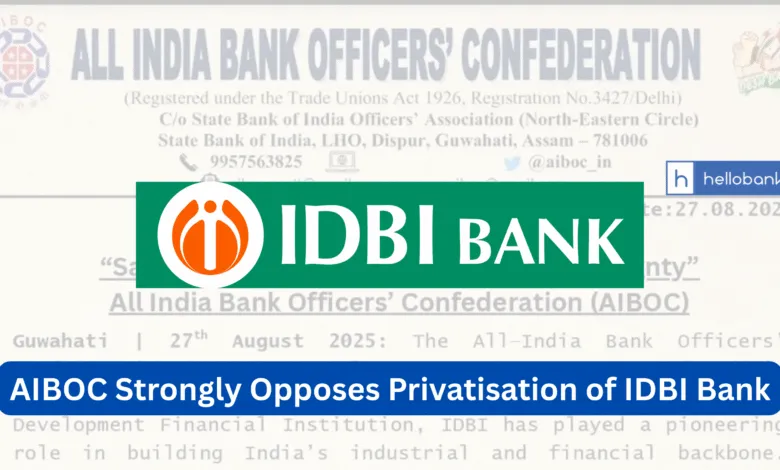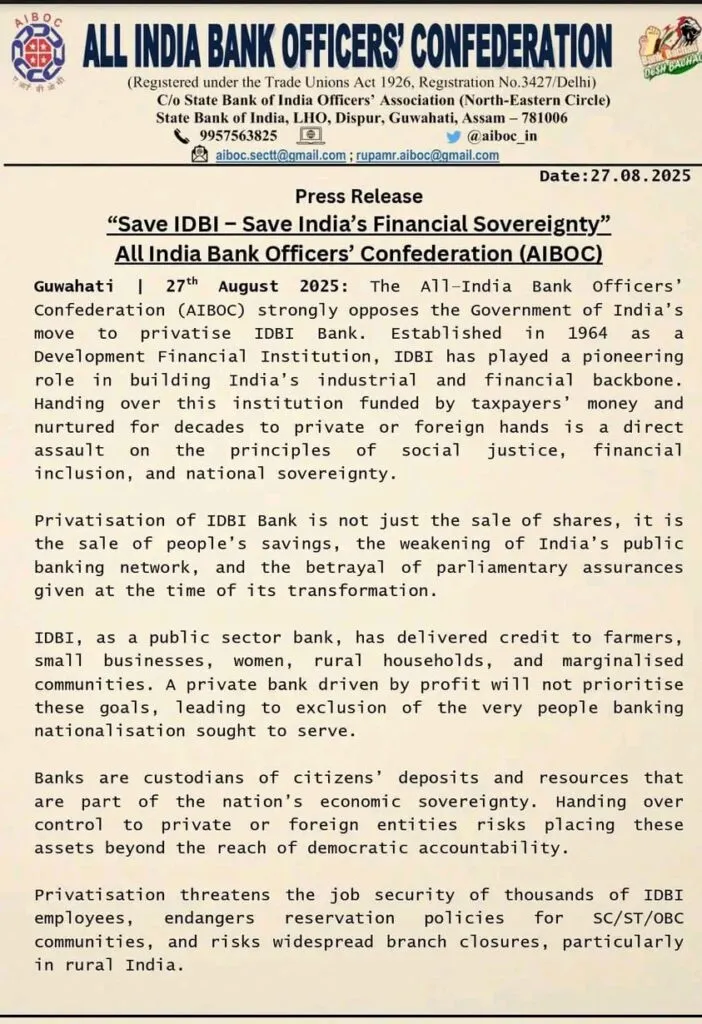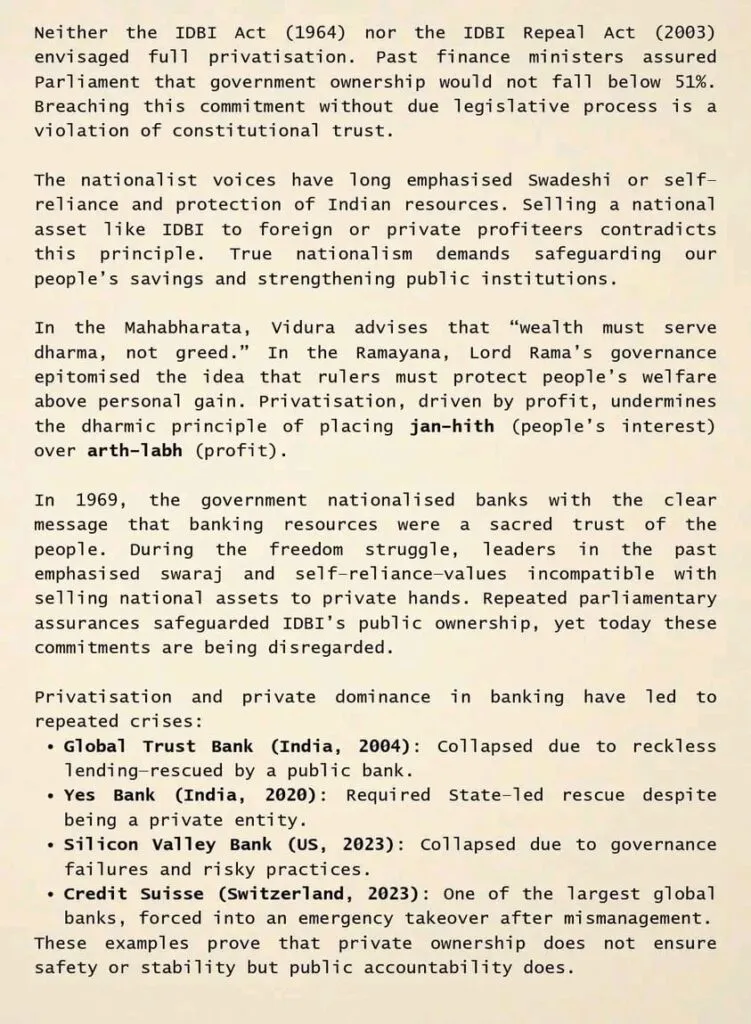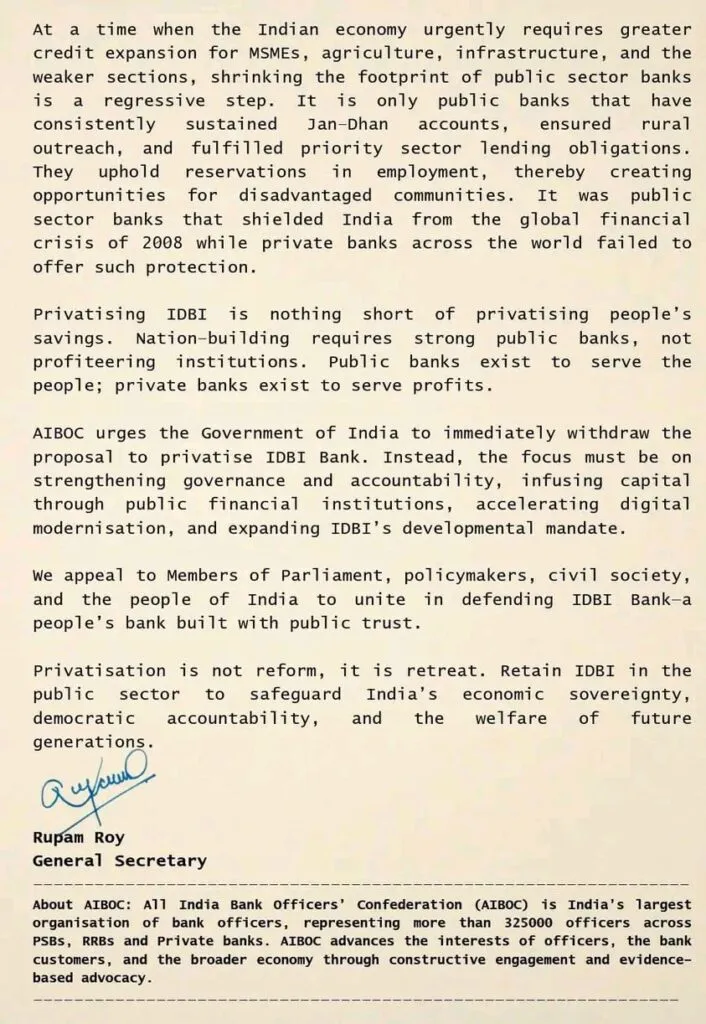Threat to National Interest! AIBOC Strongly Opposes Privatisation of IDBI Bank

The All India Bank Officers’ Confederation (AIBOC) has strongly opposed the Government of India’s proposal to privatise IDBI Bank, calling it a “direct attack” on social justice, financial inclusion, and the nation’s economic sovereignty.
IDBI Bank, set up in 1964 as a Development Financial Institution, has played a very important role in financing India’s industrial growth and nurturing public sector undertakings. AIBOC said the bank, which has been built with taxpayers’ money, should not be handed over to private or foreign hands.
AIBOC said that privatisation would not just mean the sale of government shares, but also the transfer of people’s savings to private profiteers. It warned that:
- Thousands of employees may lose job security.
- Reservation benefits for SC/ST/OBC employees could vanish.
- Many rural branches may be shut down.
- Lending to weaker sections, small businesses, farmers, and women could be ignored in pursuit of profit.



Also Read: Who is Responsible for the Downfall of IDBI Bank?
AIBOC also reminded that earlier finance ministers had assured Parliament that government ownership in IDBI would never fall below 51%. Going ahead with privatisation without parliamentary approval would amount to a “violation of constitutional trust.”
The journey of private sector banks in India has not been so smooth in the past. The union cited several examples of banking failures under private ownership:
- Global Trust Bank (2004, India) – collapsed due to reckless lending, later merged with a public bank.
- Yes Bank (2020, India) – had to be rescued with government and RBI intervention. A public sector Bank – SBI, invested huge amount of money in the Bank.
- Silicon Valley Bank (2023, US) – collapsed after risky practices.
- Credit Suisse (2023, Switzerland) – taken over in an emergency after governance failures.
“These examples prove that private ownership does not guarantee safety. Public accountability in banking is far more reliable,” AIBOC said.
Public Sector Banks as the Backbone
AIBOC highlighted that only public sector banks have consistently supported schemes like Jan-Dhan accounts, priority sector lending, and rural financial inclusion. Public Sector Banks shielded India during the 2008 global financial crisis, when several private banks worldwide collapsed.
AIBOC said that wealth must serve dharma (public good) and not greed. True nationalism, it added, lies in protecting people’s money and strengthening public institutions, not selling them to private or foreign entities.
AIBOC has demanded that the government immediately withdraw the plan to privatise IDBI Bank. AIBOC has said that instead of privatising the Bank, the Government of India must focus on:
- Improving governance and accountability.
- Infusing more capital through public institutions.
- Expanding digital modernisation.
- Strengthening IDBI’s role in development finance.
Also Read: Who is Responsible for the Downfall of IDBI Bank?
The union also appealed to Parliament, policymakers, civil society, and citizens to oppose the move.
“Privatisation is not reform, it is retreat. IDBI must remain a people’s bank in the public sector to safeguard India’s economic sovereignty and future generations,” the statement said.
Recently, as per media reports, the Government of India wants to privatise IDBI Bank by the end of this year. Secretary of the Department of Investment and Public Asset Management (DIPAM), Arunish Chawla has said that – The government has set a clear timeline for completing the privatisation of IDBI Bank. The core part of the process is expected to be completed by March 31, 2026.
